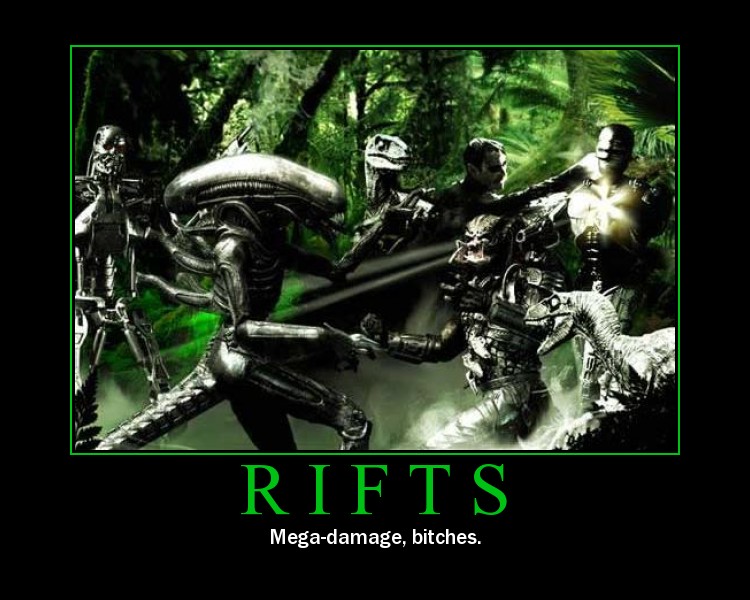Depends on the campaign setting. I would say Forgotten Realms and Greyhawk are pretty much the definition of generic fantasy at this point.
I tend to use the phrase “Elves and shit”, but that isn’t really any more descriptive than “Generic Fantasy”.
Yes it did.
Pug became King of all Magic, and the Multiverse practically. Then he married Macros’ daughter, who is basically a princess of the super bad ass former king of magic.
And Tomas effectively became king of the elves (and of the dragon lords sort of), though Battle Consort of Queen might be more accurate.
So it happened twice, at the same time.
Oh, right, D&D novels. I keep forgetting about them. (And I even read Dragonlance!)
Okay, EFP is surprisingly rare outside of D&D novels and other licensed stuff. :>

At thou samest time!
I almost think that trying to avoid fantasy tropes makes ones work even worse, were one to try and write fantasy. I don’t know how authors get around that problem! I guess most don’t.
I don’t think there’s anything wrong with generic fantasy. What matters is how it’s approached. Harn is one of my favorite settings because it approaches the subject with a sense of complexity and, fantastic races/monsters and magic aside, realism. Dragon Age’s re-imagining of the generic fantasy setting works very well for me too.
As examples of non-generic fantasy worlds I leaned on the examples of Tekumel and Talislanta gameworlds. Which, to judge from the TV Tropes article, are both outside of mainstream fantasy. Especially Tekumel.
Fair enough. I shouldn’t have said it the way I did. I was thinking of your low magic settings, like Conan, but did not intend to exclude any supernatural activities. The key difference being between settings where magic isn’t that common versus the Forgotten Realms where peasants eat +1 Bread and drink Ale of Elfbane.
This is a little silly. Howard wanted to write historical fiction but decided he couldn’t be bothered to learn about history, so just wrote fantasy instead. If you ignore the first and last chapters of A Game of Thrones, there’s no magic and no supernatural influences at all. So is that historical fiction?
The presence of magic is the defining characteristic of fantasy. It doesn’t matter where or how often it occurs in the story.
One might have thought the presence of fantasy would be its defining characteristic.
Please define the word “fantasy” as you’ve used it in that sentence.
To what genre would you assign something that has swords and kings in a fictional medieval world, but no magic?
I’d say its kind of difficult to get too precise about it. Lots of stories uses generic elements, but may use them in a non-generic format. Generally, western European mythology and history is at the core of generic fantasy. The stories tend to spring from older established patterns and contain a fantastical element - supernatural events, “magic”, unexplained or just plain weird phenomenon. Now the magic may be approached as a science, but it isn’t bound by our real world’s physical laws and constraints. Otherwise it is just a science fiction story taking place on a different world, even if stuck in medieval mode.
Howard approached it as alternate history with a fantastic or supernatural element, so the settings were usually historical models with the place names sanded off. Tolkien took existing mythologies and wove his own alternate world. I’m not sure that I’d call either generic, but their influence was so great that the number of disciples essentially made their models the generic ones. If anything solidified something as generic, it was D&D. It got put into D&D and the obscure became widely known and accepted. RPGs, be it computer or live, tended to grab onto familiar bits and pieces and use them such that they became unimaginative standards. Why? Because that way there was something that players could easily identify with and proceed from.
“Generic” fantasy to me would be…witches, warlocks, ghosts, skeletons, dragons, norse or greek gods and maybe a unicorn.
Alternate worlds or alternate history. There’s no fantastical element beyond the setting itself. Essentially, it could simply be a society on a different planet - while the society and settings are different, the rules are the same.
“Chivalric Romance.” Probably. But it could still be epic fantasy.
Not my term. Michael Moorcock’s from his "Wizard & Wild Romance: A Study of Epic Fantasy..
Unfortunately, I have not finished it, but it is interesting and dense with information on books I’d never heard of - I’ve ordered at least three books he discusses in it.
I /ignored the Zy about two years ago, never looked back. And happily no-one ever quotes him (because, y’know, Zylon).
Got you caught up on the last two years there, Seb.
Truly generic fantasy tends to be the work of third artists. The first artist paints what he sees. The second artist copies the first artist. The third artist copies the second artist.
Howard and Tolkien were first artists. They were inspired by prior legends and myths, but they weren’t aping them–they mined the myths for material to build something new and interesting with.
Gary Gygax was a second artist. D&D shamelessly copies from the past masters of fantasy.
Bad generic fantasy (like most videogame fantasy settings) copies from Gygax, and is a copy of a copy of Howard, Tolkien, Moorcock, et al.
